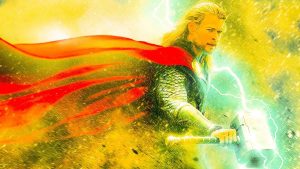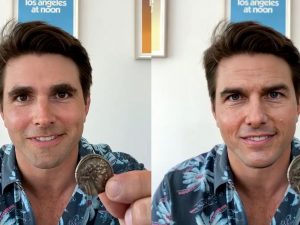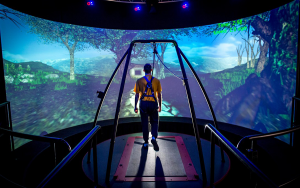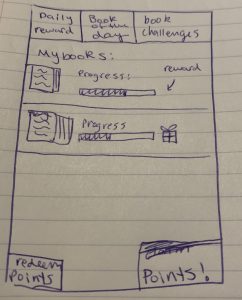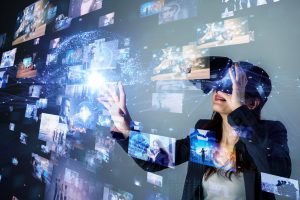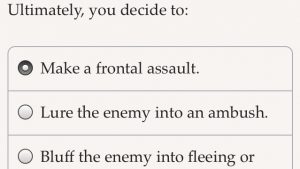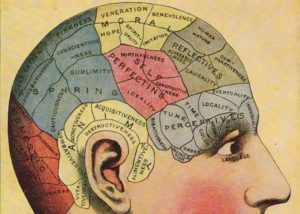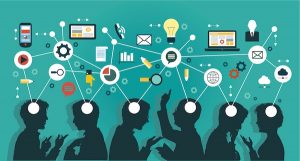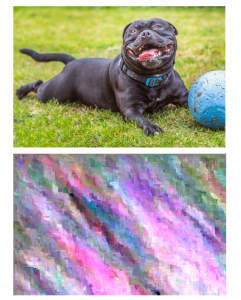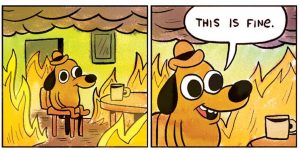Author: kbilic21
Creative Activity #5
7/27 – Digital Art and Expression
I was drawn to the computer method/technique of simulation. I think the ability to mimic or imitate something is a very strong force and certainly brings up the ideas of increase in technology becoming threatening. I think that simulation holds a lot of threats within what it is capable of. One thing that struck me from today’s discussion was the Tom Cruise imitation technology. If we are able to imitate others through a visual lens there can be a lot of dangerous things with this, especially going as far as political threats.
(The Verge)
On the other hand I think simulation holds something very amazing for the world of digital gaming. There are VR games that simulate real world activities and really put you into a new environment. As an art form this can develop as our knowledge of technology increases. I can visualize a future where simulation has brought new reality based experiences, such as not actually having to leave to go to work. There may be a future where people simply put on a head set and enter a virtual world. People can also use this technology to make works of art that are either new worlds as it holds an infinite number of possibilities that can take on whatever someone could imagine.
(WearableTechnologies.com)
With the method of simulation I would be most interested in using it to travel the world. If I could have something that perfectly simulated what going to other countries would be like, but without the hassle and price of traveling that would be ideal. I do think there is benefits to seeing the real thing, but if this technology was available, more traveling could actually take place and more people could be involved in the experience.
Creative Activity #4
I would want to create an app that encouraged people to read more books in a “post-pandemic” world. For me I found a lot more time at home to read books that I wanted to, but realized it may be hard now that life is going back to normal. The goal would be to read at least one book a month, or the user can pick whatever fits their lifestyle.
In chunks this goal would look like one to two books a month, depending on the person. The different levels would be after you complete a book or month of reading. This would hopefully encourage users to read their books in order to level up. The leveling up would be a reward in itself as you could unlock certain things within the app to make reading more fun. Rewards could be badges for each book you read or maybe after reading a series you could get points that allow you to redeem something. I would like to have points in the game to be redeemed for book related things, something like gift cards.
I think the theme would have to be something clean and approachable for people of all ages. It would have to be simple to use as well. I could see this app being used by many different types of people due to its shared interest in reading. To make it fun I think a social aspect would be really interesting. People can share book recommendations through a social media type section, and maybe even write little reviews on books that they enjoyed. It could also be a place for new authors to advertise their books, and maybe rewards could be offered for reading certain books at certain times of the month or something like a “book of the week” reward.
The Interface:
This is a little sketch of what the interface might look like. It would have progress bars for the books you are currently reading and the reward would be for if you complete it in your time limit. The time limit would be chosen by you because everyone reads at different speeds. There would be a total point area and a place to redeem those points for special rewards.
The challenge is to read more books, and to try to keep up with reading books in a busy life. Even though the pandemic is winding down, people may still want to enjoy these types of things that keep them interested while at home.
The choice comes from your ability to choose what books to read. You do not have to read your quota of books each month if you do not want to. You won’t be penalized, but you will get rewards if you do.
The change can come from increase of difficulty in challenges. I think maybe the app could do harder levels like read a 1,000 page book in one week. If there is a reward I think people would be interested in trying these harder challenges.
I don’t think chance really fits with this app as I have imagined it. But maybe there could be like a random book of the week kind of situation that would always be switched up.
The outcome of this app would be a fun way to track progress in reading. By giving out rewards are offering challenges this becomes a fun way to get people to read more books.
7/22 – Digital Games
I played a lot of video games growing up. My first game was on a gameboy that my mom had handed down to me and my brother. I was obsessed with playing Pokemon Ruby. I could play this game for hours without even noticing. With a game like Pokemon where the objective is to collect and train and battle with the creatures, you can also spend hours just searching the game for new pokemon and you can totally abandon the main storyline. When I was younger I actually didn’t understand the storyline at all, so I just ran around the game strengthening my pokemon without even knowing. When I came back to it several years later I finally understood how to play and beat the game. What was so amazing about a game like this is that you could just play, and you did not have to be constantly reaching a goal. It was just as much fun to enjoy the world it created.
(Amazon.com)
For a brief game analysis of Pokemon Ruby, The choice comes from the first time you play the game. You have to pick who you want to play as, and what your starter pokemon will be. This choice somewhat leads you down a certain path, but all are very similar. After this the challenge arises, you have to defeat a certain number of “gym” leaders. To do so you have to explore the game and find them in different areas, all while collecting pokemon and training them more and more to defeat new and stronger opponents. The change comes from how you play the game. You can take your time and level up as long as you need, or just go as quick and lose a bunch until you level up. As you beat gym leaders the difficulty changes, you start meeting stronger pokemon and other trainers that increase difficulty. And finally the chance portion of it is that the pokemon you encounter is pretty random. You can run around a little pathc of grass one time and encounter a weak pokemon, and the next time it can be a strong, rare pokemon. This keep you very engaged with the gameplay, almost like a gamble if you will find the rare one or not.
(Youtube.com)
This game left an impression on me because of how easy it was to play. You didn’t have to keep progressing like I said earlier. You could just play the game by running around finding new pokemon. This made it very appealing to my 7 year old brain. There was no stress that came with it. Also the portable nature of the Gameboy was very helpful in bringing it on road trips where I could play for hours. As time went on more and more pokemon variations came out on different consoles, making it something that was always being upgraded. Even today I can play the new pokemon and have the same level of excitement.
7/20 – Data and Information
I think big data and data analytics has two sides, and it is really dependent on your own personal role in life to which side you align with. For me I see potential benefits with the use of data analytics and the potential for better technology in the medical industry. One of the videos from the textbook highlighted new possibilities for data and how it can be used to improve people’s ability to track their health. This type of technology uses data to tell a person what their health is looking like now and warns them of potential changes that could affect them. In my opinion this type of technology would be amazing for the health of people in our world. It would also give health care workers more information to go off of when treating patients. This same situation can be applied to things outside of medicine, and are potentially more harmful. The ability to track ones future choices with a set of data would change lots of things.
(nbs.net)
I personally see a lot of benefits with the algorithms that show me what I want to see on the web. I can simply look at my YouTube homepage and I am given many things of interest. Because this makes it easier for me, I like it.
I am not sure that we will ever be able to make something that solely has a role of improving lives. Someone will always use it for their own gain rather than others. We discussed much of this today during class, where digital technology made for one things is almost always used in a way it was not directed for, and ends up threatening other users in some way. An example of this is the use of Youtube for monetary gain that takes advantage of children’s viewing habits to make money.
But I think that humans will always need to be involved if we want to make sure these digital technologies work to help people. Maybe people will have to oversee these algorithms and kind of keep them in check. Reporting on uses and if things are actually being used to improve lives rather than gain off of them.
7/15 – Social Media and VR
With new emerging forms of social media, a person can find themselves being able to engineer their lives through a digital lens. They can structure the way in which someone see them through what they choose to post, or completely remain anonymous and post whatever they may feel. Digital communities such as Second Life incorporated the ability for people to live out an entirely different life online. This opened the eyes to many of the way the digital world can incorporate itself into our own while remaining separate.
(Wikipedia)
This “virtuality” changes the idea of what is the real world, and allows for more interpretation and ability to access new “lives”, much like what second life does. It gives the user an opportunity to leave this “real world”, and do something else, even be someone else. What this does is makes new societies, communities and identities. Ones people can use differently than their real world ones.
VR has potential to affect our relationships with who we are now. It allows for another life to take place, another community to form and so on. This could be dangerous for some, who choose to escape from their real life for something else that they can engineer, putting other relationships at risk. This idea of VR social media could affect many societies in that people are disconnected due to other connections in “other worlds”.
(G2 Learning Hub)
What I like about social media is the way to hear about what my friends are up to. I want to see their experiences. But what I think is most important to me is that I already have an existing “real life” relationship with the user. I just use the digital technology to access their experiences that they choose to share. My perfect social media would be one without anonymity, much like Instagram where real people can share their real experiences.
My concerns for virtual life is the loss of people experiencing what the real world has to offer. I am talking about earth. Virtual life can take us to anywhere we could possibly imagine, but I don’t think it could ever replace the real feeling of visiting a location like Yellowstone National Park. The pictures do not do it justice, the actual personal experience shared with a location or person is much more important in my opinion. I am afraid we may lose this with too much virtual reality driven pieces of technology.
(The Chronicle of Higher Education)
But I do see lots of benefits as well, and this comes from a scientific standpoint. As someone who wants to become a doctor, this technology would greatly improve the practice. This would allow surgeons and other professionals a different looks at healing the body.
Mosaic Probe Project
7/8 – Digital Texts
Digital technology easily remediates the narrative arts of all other media (radio, movies, tv, fiction), but it also introduces new possibilities that may challenge our very notions of narrative – that a story needs a beginning, middle and end, for example. Which of the above digital texts engage you most and why? Discuss how we can approach new digital works that present stories in unfamiliar and challenging ways. What are your thoughts/experiences of how the digital, hyperlinks and the web are changing the art of storytelling.
The My Boyfriend Came Back From War by Olia Lialina digital text was most engaging to me due to its interactive nature. This digital text forced you to click in certain areas to expand the story, encouraging participation among the audience. You could almost engineer the story yourself depending on how many times you clicked or where you clicked. Zit allows the viewer to make the story instead of just follow a linear path that the author may have intended. What makes this interesting is the purposeful nature form the author, they knew that they gave this many options and that the story did not follow a path, but instead the path of what the reader picked.
(Olia Lialina)
These types of works can be challenging due to the lack of structure. It can be challenging to follow, but I think to approach this there needs to be more creativity within the mind, and more openness to the wide path a story can take. We need to have an open mind to these experiences, because if we do not we cannot expand our understanding of the stories of the future. This reminds me a lot of just the networks within the internet. There are infinite amounts of paths to take, but each one opens a new door, and I believe this is what Lialina is getting after in this piece.
The art of storytelling is for sure changed by this new medium and experience. We began with oral tradition and words passed down, then to written traditions and finally this visual writing that tells the story in a completely new way. The art of storytelling becomes bigger than ever due to the many ways in which something can be told, and now interpreted. In Lialina’s piece you get fragments of one story but due to the structure it is up to you to decide the chronology and what makes most sense. I felt like I could choose which way to take the story almost like a “choose your own adventure” type of game. The digital changes a lot of this process for story telling just due to the technology that is not present in a novel or just oral tradition.
(Pocket Gamer)
7/6 – Bush and Nelson
Vannevar Bush and Ted Nelson were visionary thinkers seeking solutions to the problems of information overload and hierarchical storage systems that seemed to stifle human creativity and associative thought. Now that we have the World Wide Web, in what ways have these visions of Bush and Nelson been realized? What remains unrealized?
(Zocalo Public Square)
With the World Wide Web I think that there are many things that remain invisible to the common person. This space is a network of thousands of connections and resources, too much for one person to ever comprehend. Bush understands the complexity as to how this knowledge is stored, and aims for creating the task of organizing this mass of knowledge. Bush wants us to have access to this knowledge, and to use our tools to command this knowledge. This vision by Bush is quite large in my opinion. The internet allows us so much access, but I do not think it is comprehendible for a person, it is just too much. But Bush’s vision is unique in that we have begun to realize our power in creating these types of mechanism for storage of knowledge. He compares it to how we make tools to extend parts of our body. The internet or world wide web has extended the powers of the mind instead.
Nelson approaches this through systems of organization. In the lecture talk video it was discussed that Nelson sees this as a forced way of thinking. When we organize something in a particular way, we are forcing the brain to understand it and make sense of it. I may be understanding this part incorrectly, but the world wide web has certainly forced our mind to think a certain way in terms of organization. Something that is realized about Nelson’s vision is the importance for connections. My biggest observation on the effect culturally of the internet is the ease for communication. Nelson also knows that networks that are formed via the web allows for more knowledge to come together.
(E Learning Industry)
So these visionary thinkers end up working hand in hand. Bush wants to see access to this mass of knowledge, and Nelson wants to organize it in a way that will benefit the mind. I think what comes out of this is that the world wide web has opened the way for many visionaries, and all can be connected in some way.
